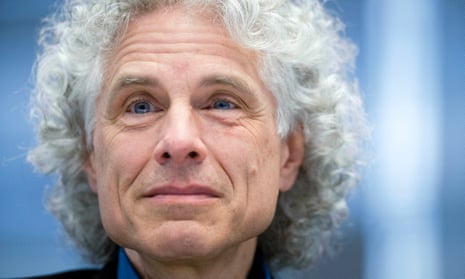The big prizes go to books on war, terror, cancer and extinction, feeding our morbid curiosity about the gruesome ways in which things can go wrong. But there is an underappreciated genre of books that recount the facts of progress. These improvements are not as photogenic as the bursting bombs and oil-soaked birds, and any author who presents the bright side, no matter how data-driven, is likely to be mocked as a Pollyanna or Pangloss. But rational optimism has inspired graceful, witty narratives, and passionate defences of the Enlightenment ideal that knowledge and sympathy can improve the human condition. For every plague, horseman and reaper, there are several sparkling books on how we are subduing them.
Authors who describe the remarkable decline of poverty, hunger and disease in the developing world anticipate such incredulity that they often flaunt the word “great” in their titles, such as Nobel laureate Angus Deaton’s The Great Escape and Steven Radelet’s The Great Surge. More modestly, Charles Kenny tells us how the world is Getting Better. As does Factfulness by the late TED star Hans Rosling, who liked to quiz his audiences on trends in wellbeing and show that they did worse than chimpanzees.
The equally remarkable decline of armed conflict is recounted in Joshua Goldstein’s Winning the War on War and several irreverent books by John Mueller, including The Remnants of War and the sarcastically titled collection A Dangerous World? The most surprising may be The Internationalists, in which Oona Hathaway and Scott Shapiro argue that the oft-ridiculed 1928 pact outlawing war deserves much of the credit.
And no, the environment is not hopelessly despoiled and depauperate, say “ecomodernists” such as Ronald Bailey in The End of Doom, Ruth DeFries in The Big Ratchet Chris Thomas in Inheritors of the Earth, and Stewart Brand in Whole Earth Discipline. Children of the 1970s will appreciate the title, an allusion to Brand’s groundbreaking Whole Earth Catalog, which merged technology with the counterculture and encouraged global consciousness with the breathtaking “Earthrise” photograph on the cover.
Progress is not just material but moral: the world has abolished human sacrifice, slavery, heretic-burning, witch hunts, duelling, apartheid and male-only suffrage. It is also decimating child labour, capital punishment and the criminalisation of homosexuality. The story is told in James Payne’s The Decline of Force, Kwame Anthony Appiah’s The Honor Code, and Michael Shermer’s The Moral Arc – an allusion to Theodore Parker’s famous line (beloved of Martin Luther King) that the arc of the universe bends towards justice. Still bigger pictures are presented in Johan Norberg’s Progress and Matt Ridley’s The Rational Optimist. And a deep theory of why humanity is destined to make progress may be found in David Deutsch’s dazzling The Beginning of Infinity. Deutsch presents science as a force for betterment, since it impels us to explain the world while forcing us to acknowledge our fallibility.
But the best paean to optimism in the English language is in PG Wodehouse’s Right Ho, Jeeves. In his climactic speech at the Market Snodsbury Grammar School, Gussie Fink-Nottle ticks off “the fellow with a face rather like a walnut” who said the world was in a deplorable state. “Don’t talk rot,” advises Fink-Nottle; “It is a beautiful world. The sky is blue, the birds are singing.” After reading Wodehouse, who could disagree?
- Enlightenment Now by Steven Pinker is published by Allen Lane.

Comments (…)
Sign in or create your Guardian account to join the discussion